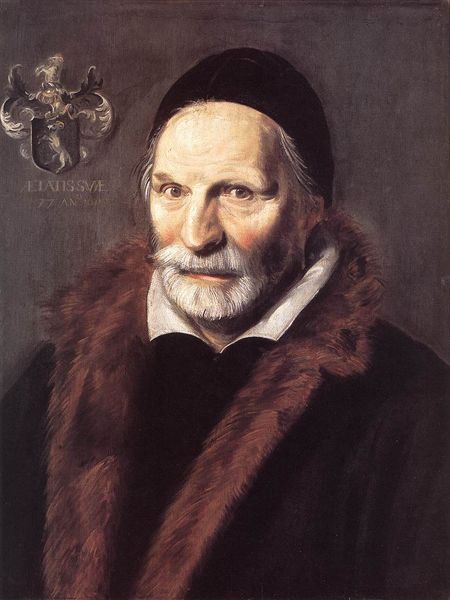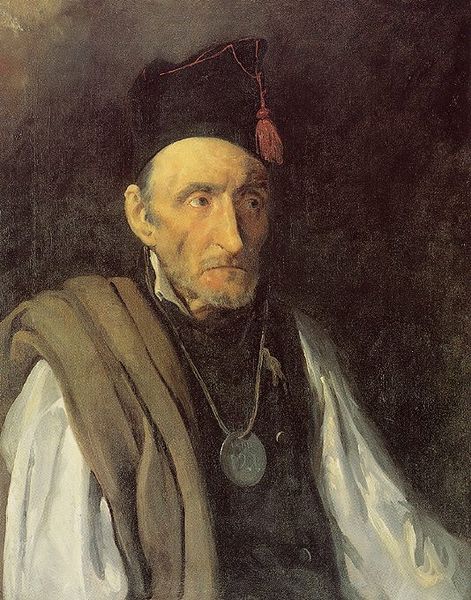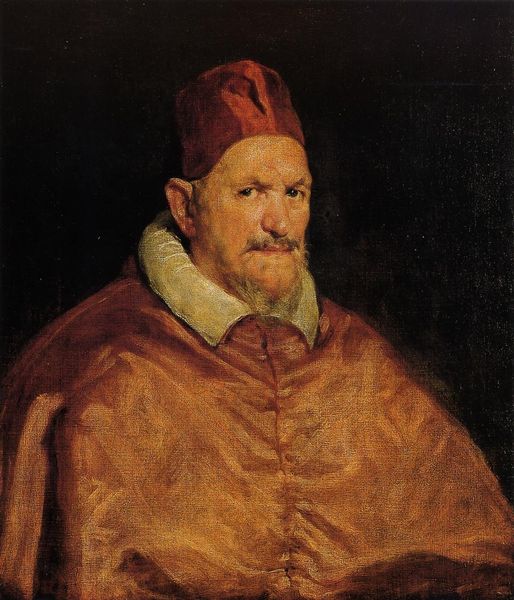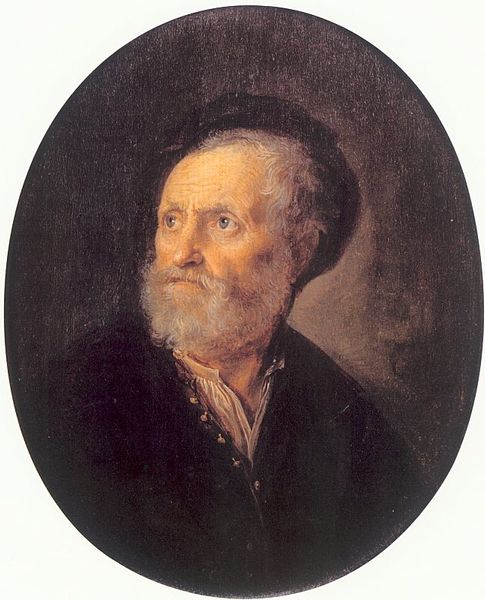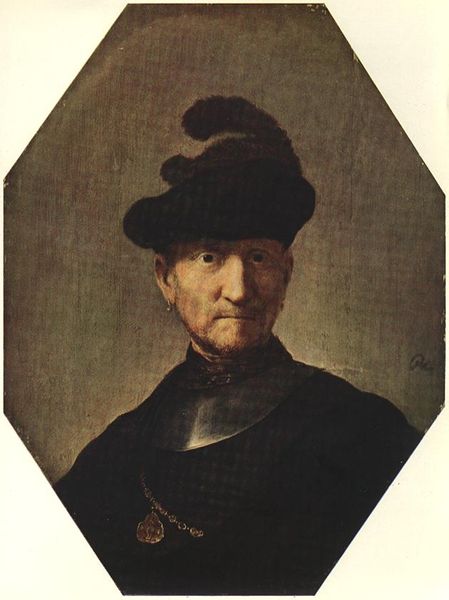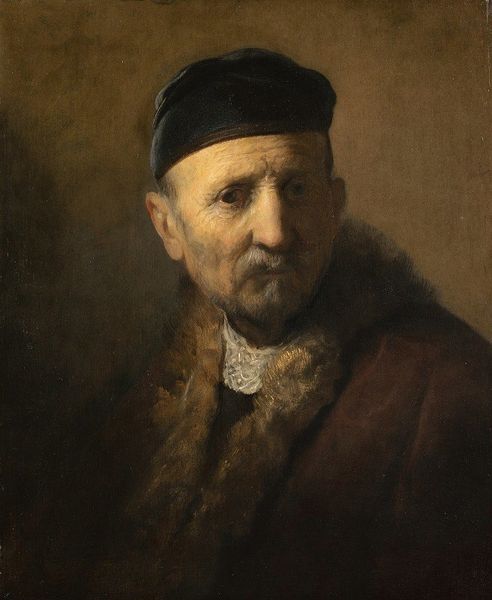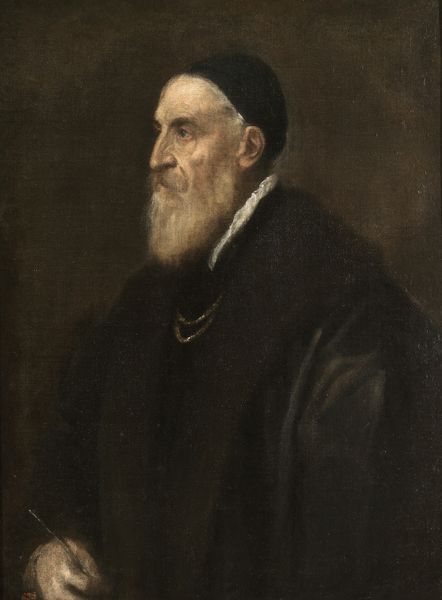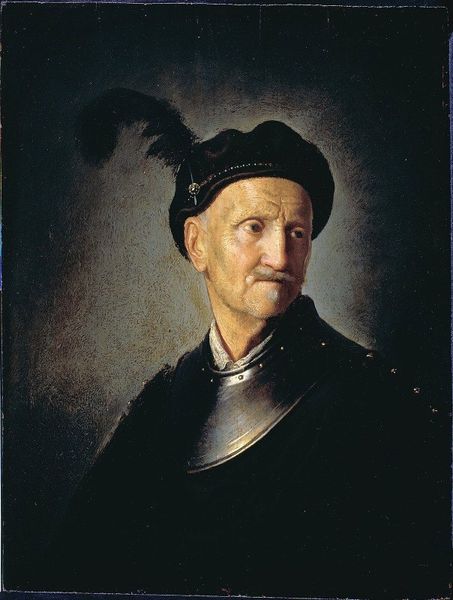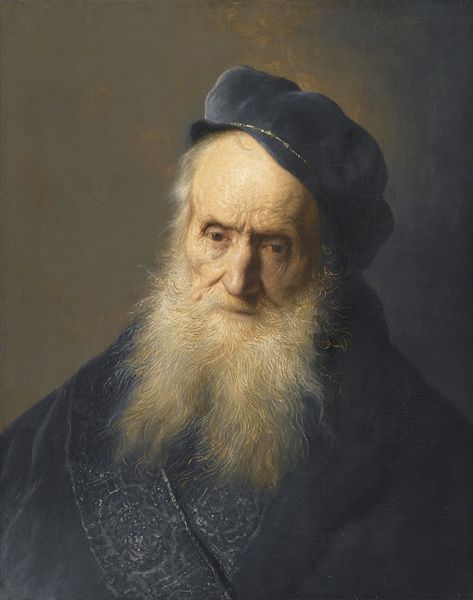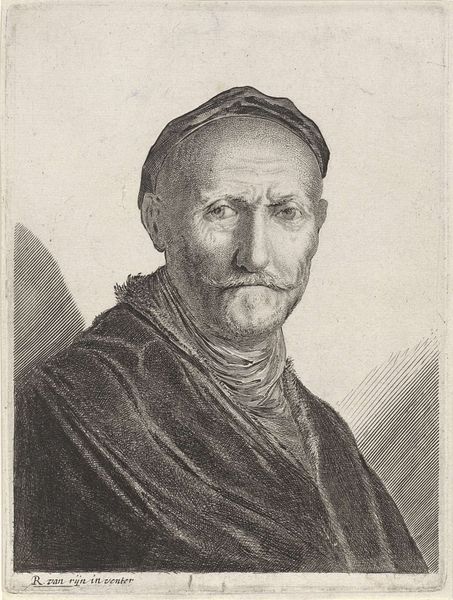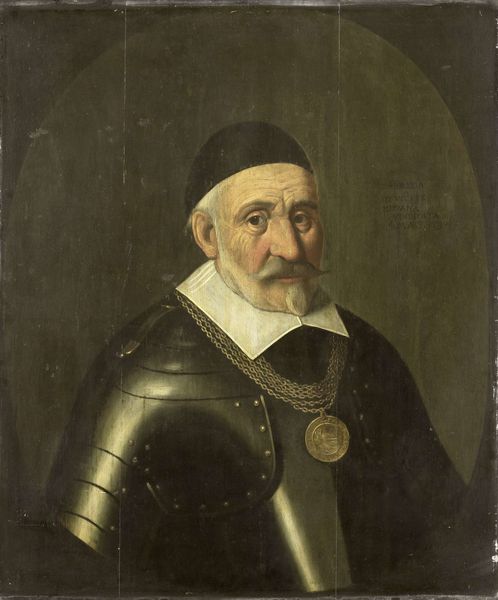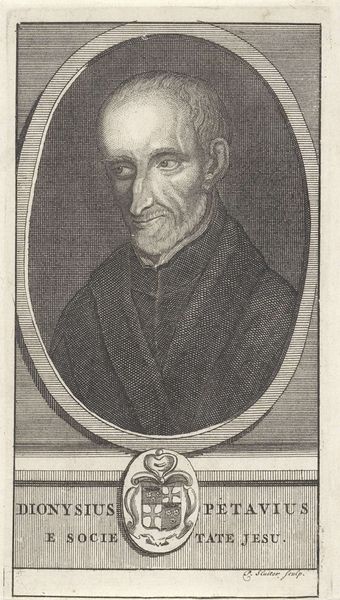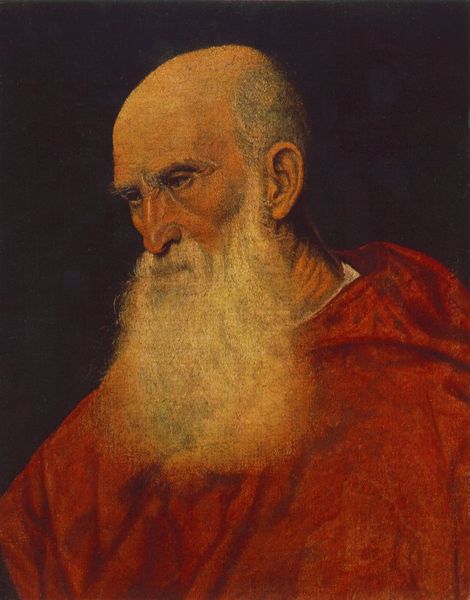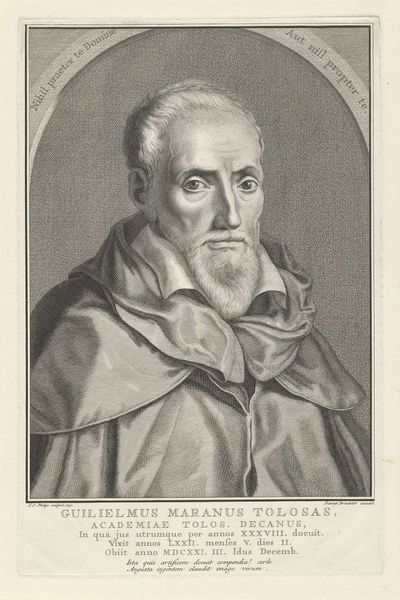
painting, oil-paint
#
portrait
#
baroque
#
portrait image
#
portrait
#
painting
#
oil-paint
#
portrait subject
#
portrait reference
#
portrait head and shoulder
#
animal portrait
#
chiaroscuro
#
portrait drawing
#
history-painting
#
facial portrait
#
fine art portrait
#
realism
#
digital portrait
Copyright: Public domain
Curator: Look at this arresting portrait! This is Rembrandt van Rijn's "Bust of an Old Man" from 1631, oil on panel. It's privately owned, and we're fortunate to view its impact today. Editor: The most striking thing is the gravity. The way the light falls makes this elder appear stoic, perhaps even burdened. His face seems etched with time and experience, and the heavy cloak emphasizes a withdrawal from the world. Curator: That darkness isn't accidental; Rembrandt was already exploring chiaroscuro quite deliberately here. Notice how the light highlights the intricate network of wrinkles around his eyes, mouth, and forehead, transforming his face into a landscape of lived history. Each furrow serves as a symbol. Editor: Exactly. The contrast illuminates a social divide too. Although the subject seems withdrawn, that elaborate gold chain around his neck speaks to status and likely wealth. It hints at the tensions of 17th-century Dutch society – a rigid hierarchy challenged by growing mercantile power. Curator: A compelling paradox, isn't it? The man radiates wisdom and humility yet displays signs of opulence. It echoes certain saintly iconography too. He’s almost presented as a prophet or scholar carrying centuries of inherited wisdom. This symbolic layering allows many cultural readings of value, class, religion and experience to overlap. Editor: Which perhaps challenges assumptions we have today about aging and value in society, too. Rembrandt positions this figure as not disposable, but integral, historically important. And that quietly resists social prejudices which haven't quite gone away today. Curator: A great reminder of the ongoing relevance and transformative power of images. "Bust of an Old Man" continues to reveal both its moment and ours. Editor: Indeed, and encourages a much-needed reflection on who we choose to remember, celebrate and immortalize through our art and cultural output.
Comments
No comments
Be the first to comment and join the conversation on the ultimate creative platform.
